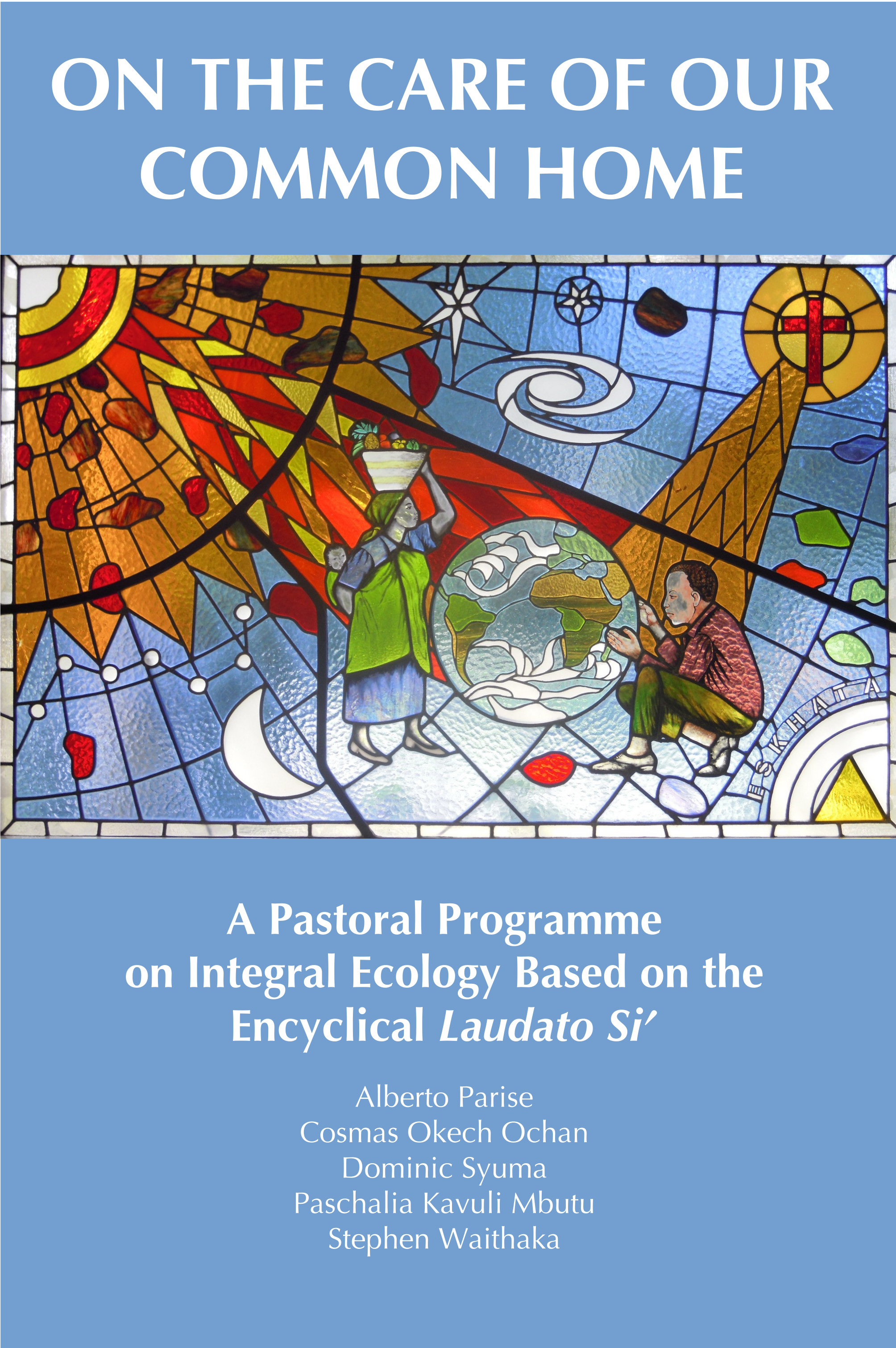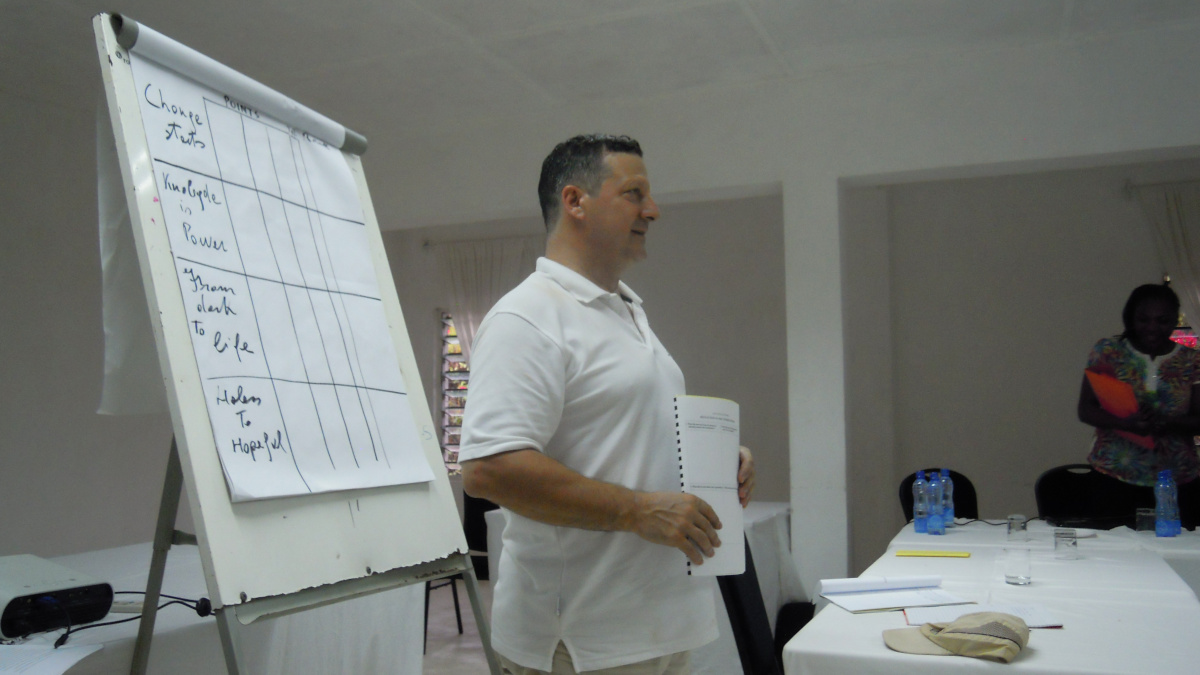Consecrated life is not something foreign as Christianity in the same way is no longer something foreign to Africa. We know that the harvest is rich, we only need to go out there with the right message and disposition, and in his turn, the Lord of the harvest will send as many laborers as needed to do the harvesting. We are actually seeing this happen before our own eyes and the momentum has to be accelerated. Africa can produce innumerable “Holy and Capable” missionaries for the rest of the World.
The APDESAM, has set some priorities for the next six years, such as education, urban ministry, pastoralists, and interreligious dialogue especially with Islam. Other priorities are, justice and peace, working with refugees, mass media and vocation promotions. In this article I will share my personal experience of the joys and challenges of vocation promotion. The word vocation derives from the Latin vocare, which means “to call.” While the word promotion refer to the entire set of activities, which communicate the product, brand or service to the user. Therefore, in a religious context vocation promotion is the idea to make people aware, attract and induce to the vocations in the Catholic Church.
The idea of vocation is central to the Christian belief that God has created each one of us with gifts and talents oriented toward specific purposes and a way of life. In the broadest sense, as stated in the Catechism of the Catholic Church, “Love is the fundamental and innate vocation of every human being” (CCC 2392). More specifically in the Catholic Church, this idea of vocation is exclusively associated with a divine call to service in the Church and humanity through a particular way of life in a commitment such as the sacrament of marriage, consecrated life, ordination to priestly ministry in the Catholic Church and even a holy life as a single person. In the broader sense, Christian vocation includes the use of one’s gifts in their profession, family life, church and civic commitments for the sake of the greater common good. Due to this vocation promotion in the Catholic Church has both joys and challenges, because the church is divine and human.
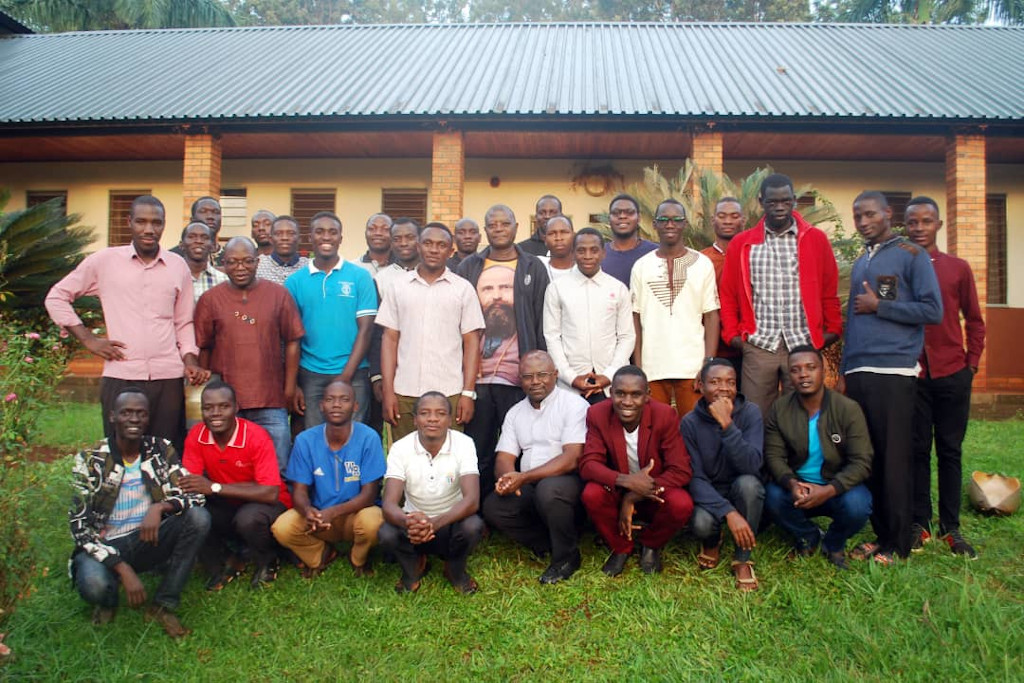
Whatever happens, vocation promotion aims at giving the young people true dignity, true transformation and true joy of the gospel. For example in Luke 4: 16- 19, “He came to Nazareth, where he had grown up, and went according to his custom into the synagogue on the Sabbath day. He stood up to read and was handed a scroll of the prophet Isaiah. He unrolled the scroll and found the passage where it was written; the Spirit of Lord is upon me, because he has anointed me to bring glad tidings to the poor. He has sent me to proclaim liberty to captives and recovery of sight to the blind, to let the oppressed go free, and to proclaim a year acceptable to the Lord.” Many young people in their teens and twenties even in their thirties, seem to demonstrate so little motivation and love toward the life of the Church. Some may say simply because they are young, but my little experience would argue that it is because we have failed to demonstrate to them how they can passionately contribute to the Church and particular life commitments in the Catholic Church. Through vocation promotion, we give sight, and set free, these young men and women, and help them to be aware of their responsibility to the life of the Church. Vocation promoters connect the youth of all ages with their unique abilities and with their real needs as young people and worthy institutions of our mother Church even communities, societies or families.
The reality is that most of our young people in Africa have missed a stage of life. To be truly effective, vocation promoters are called to help the youth to do a right thing or make a right choice at the right time. It does not matter how quickly or proficiently you are able to make a right or wrong decision in life. Doing the wrong thing well does not make it right. There is nothing wrong with being a doctor, priest, sister or a teacher if this is what you are called to be. However, vocation promotion assists young people to discover their mission in life. Why make a right choice? Experience has taught me that, the happiest people I know are people who have a sense of mission. By mission I mean living a life you believe is your call and it is God’s will. They have a joy that nobody can take away from them. The joy of their lives is linked not to the worldly scope but to the belief that they are unique to that role and the conviction that they have been called to do it by our loving and mercifulGod, in order to serve him through his people. Young people who are aware of their sense of mission in their lives are filled with a joy that is independent of circumstances. Even in the middle of tremendous crisis or trials, they still have the capacity for joy, because they believe God is with them. The reason is that whatever they are enduring now, they know that it is for the common good and in due time God will see them through.
Vocation promotions is not all about joys, there are also challenges. In Uganda province, for example we do vocation promotion based on the norms of the Local Church. Most families in Africa encounter challenges. The decline of the moral values related to the family is a challenge to vocation promotion. For instance most of the Local Churches in Uganda if not all do not admit boys or girls from polygamous families to the seminary or religious life. Of course it is not their fault to be born in a polygamous family, but the Local Church considers the family of the candidate in every aspect of life as the basis for a healthy vocation. Due to this, people have misunderstanding about religious life and look at those who joined religious life as those who have failed to become priests in their Local Churches because of the stringent requirements. However, due to the long period of time religious take to train their people in the process of formation, is perceived by many as a waste of time for those candidates as they see no need for this prolonged period of the formation journey. They also realize that it is more difficult to become a religious other than being a diocesan priest.
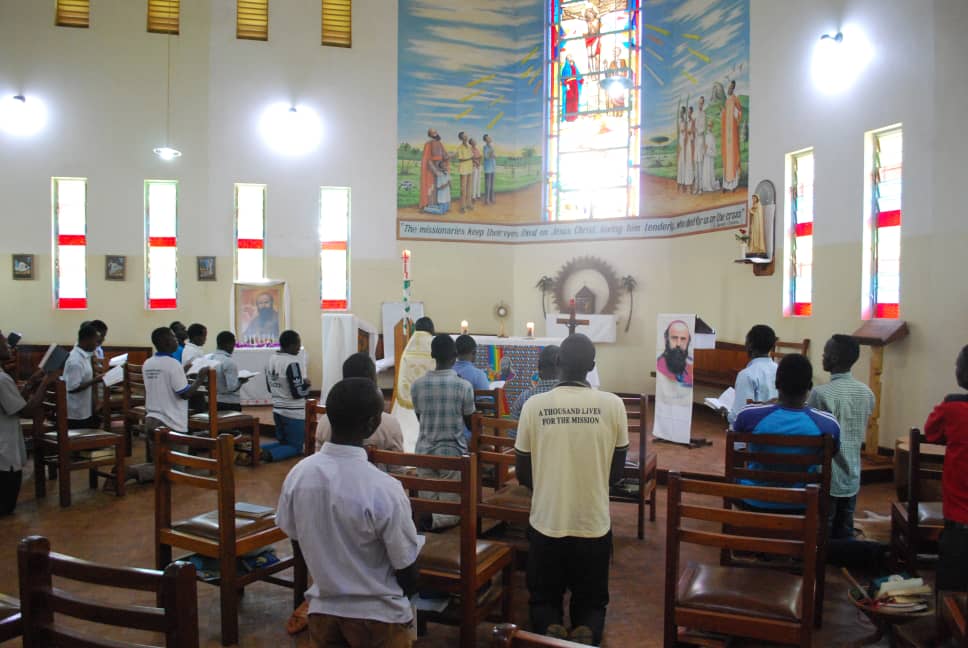
Another challenge is the poor understanding of religious life. Some young people join religious life believing that congregations have a lot of money and thus join such life for material benefits. For this reason these young people are ready to do anything in order to become religious men and women. I am not saying that money and material things are not wonderful or that they are intrinsically bad or evil, but rather it becomes a challenge at times to discern the real motives of some of them. However, we are in the world in which every parent wishes to materially benefit from his/her children once they have reached somewhere in life. This is generally the understanding and the right way in which our societies are meant to develop and grow. A young man or woman joining religious life will not be exempted from this social responsibility. Faced by this problem, many young people find themselves at a loss when they join religious life. A lot of work is needed on the part of the Local Church and the vocation promotors to educate both candidates and their families to grasp the true meaning of total giving and abandonment to the Lord’s service. I must add that in some Local Churches, there is a high level of understanding of this aspect while in some others, a little work needs to be done.
Another value that is hihglycherished in the traditional setting is personal responsibility of every individual. This is meant to be inculcated in every person at every level of their growth. However, we do not fail to see the decadence of this value in our societies of today especially among the young. Lack of responsibility can be traced in many aspects of daily living like promiscuous behaviors seen in the easiness with which young people engage in premarital sex, prostitution and drug abuse. This promiscuous way not only goes against the traditions, but also infringes on lack of living the Christian’s moral values. Life of the sacraments has greatly been weakened and most young people stay away from sacraments which have the purpose of guiding human moral behavior. Such moral decadence has led to a heightened prevalence of teenage pregnancies, deaths due to abortion, sexually transmitted disease and the list goes on. It is in society such as this that the vocations promoters are supposed to find vocations. It is a challenge when you have to get vocations in a society where there is lack of sincere commitment and respect toward one’s vocation. There are cases where you admit a candidate just to find out later that someone has already fathered a child. It makes one wonder how much the person understood of what he purports to be his calling.
Another challenge is the understanding of marriage among most of Africans societies or communities. As Mbiti once said; “for African people marriage is the focus of existence. It is the point where all members of a given community meet, the departed, the living and those yet to be born.” Among the Bemba people of Zambia the Tribe I belong to, marriage is not complete until a child has been born. In other words a person is not complete until he or she has produced a child. This concept of a person is a challenge to vocation promotion in the sense that families are not ready to let their own children join consecrated life, but they are ready to support other families’ children to become religious men and women. For instance I remember very well when I told my uncle that I wanted to become a priest, the only question he asked me was are you a man enough? If you have any problem I can always help, be honest and tell me the truth. A good number of young people have failed to respond to their vocations because their culture, society even family appreciate more married life with children other than religious life.
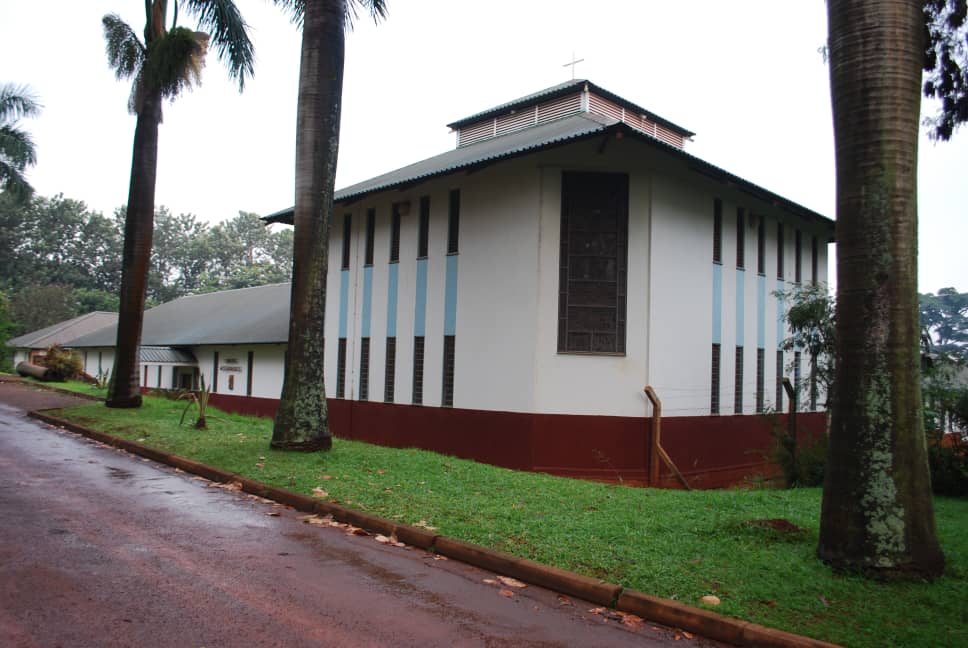
The APDESAM is right to make vocation promotion one of the priorities in her mission for now as for the future. Looking at the joys and the challenges of vocation promotion, I feel we need to prepare confreres who are ready to journey with the young people and direct them to a proper discernment of the vocational path. By preparation, this does not mean only academic formation but the whole person ready to insert himself into the life of young people, to understand their values, to accept them in totality and ready to learn from them. In the past, most vocation promotors were expatriates and these largely understood and appreciated the hurdles cultures impose on vocations to religious or consecrated life. Currently, most vocation promotors are from Africa. This does not make them experts in the field. They remain challenged by the same hurdles that existed yesterday and will continue to exist tomorrow. However, these stand a better chance not only to live by word, but also by example. Through their life experience shared and witnessed, they will help to melt away many of the cultural hurdles. Society and young people looking at their brothers before them in the ministry will come to admire, appreciate and even come forward in their pursuit for the same. Consecrated life is not something foreign as Christianity in the same way is no longer something foreign to Africa. We know that the harvest is rich, we only need to go out there with the right message and disposition, and in his turn, the Lord of the harvest will send as many laborers as needed to do the harvesting. We are actually seeing this happen before our own eyes and the momentum has to be accelerated. Africa can produce innumerable “Holy and Capable” missionaries for the rest of the World.
By Fr. Benedict Chola mccj


